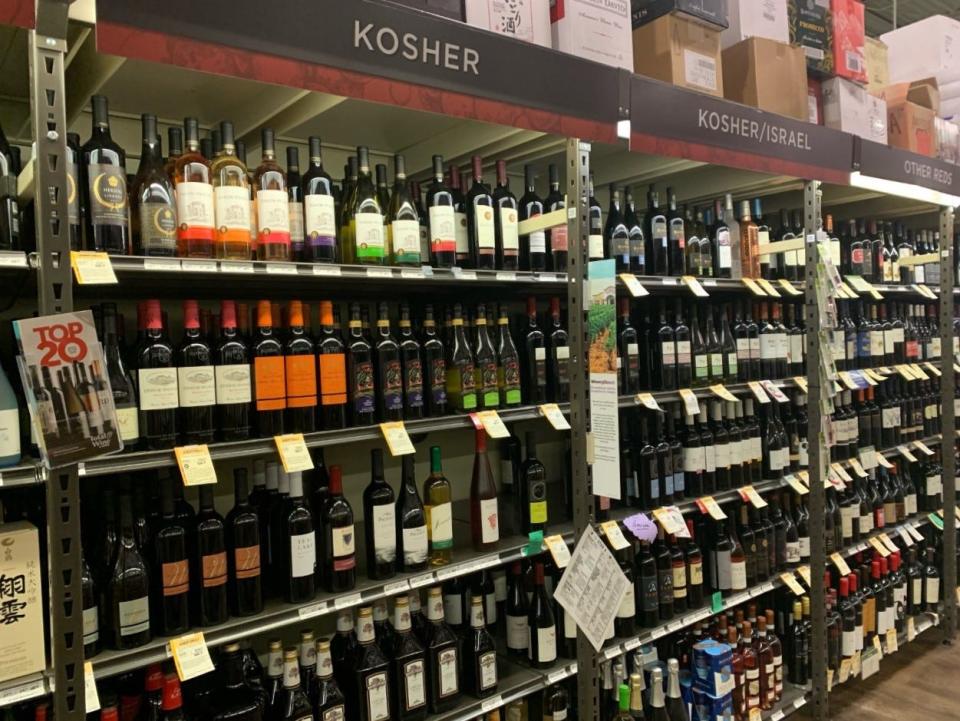What is Kosher wine? An expert explains the history and where to find it in metro Phoenix
For many Jewish families, maintaining a kosher diet is an important part of life, especially during the holidays, and while keeping kosher most often refers to food made following specific processes, it can also apply to wine. Kosher wine should be made by religious Jewish winemakers who follow certain practices at their vineyards.
Pavle Milic has worked in the wine industry for 32 years. He, along with James Beard Award-winning chef Charleen Badman, run FnB restaurant in Scottsdale. As co-owner and beverage director, Milic curated the wine list that earned the restaurant a James Beard Award semifinalist nod for the category of Outstanding Wine Program in 2017. In 2019, he launched a vineyard in southern Arizona called Los Milics Winery and Tasting Room.
He grew up in Queens, New York, and worked at restaurants in the Upper East Side of New York City, where the "demographic is stereotypically Jewish," he says.
"So, not only do you learn how to say 'Shabbat Shalom' on the weekends, you also just become quite indoctrinated by osmosis," he says.
Here he helps explain kosher wine.
What makes a wine kosher?

Many foods can be made kosher depending on how they're prepared and served.
For wine, there are two main requirements necessary for it to be classified as kosher. First, only kosher products and ingredients may be used in the wine making process, and second, the wine must be made and handled only by religious Jewish wine makers.
If the wine is made in Israel, there are additional rules that wine makers must follow.
For example, a wine maker must wait until a planted vineyard is four years old before harvesting the grapes to make wine. This is because it takes four years for a vine to grow strong enough to produce a proper and full yield, Milic explains. Non-kosher wine makers sometimes take a smaller crop from young vines after three years.
Also, traditionally wine makers following kosher practices should let the vineyard rest once every seventh year.
"You are supposed to give your vineyard a break," Milic says, "meaning not let it yield fruit, meaning you drop the flowers before they turn to fruit."
However in modern times, Milic explained, wine makers, with the advice of a rabbi, often rotate portions of their vineyards, giving some vines a rest while others can produce grapes, so they can continue wine production.
A final rule for wine makers in Israel is to pour 1% of total wine production back onto the earth. This is representative of a historical offering called a tithe.
How does the quality of kosher wine compare?
While the general perception of kosher wine may be that it is a worse quality than regular wine, Milic says that is not always the case. Kosher wines offer the same variety of quality as all other wines.
"The quality is almost a non-issue because they are made in the same way, just with these parameters that are, in terms of methodology, a little bit different, but render the same result," he says. "Just because somebody that’s a religious Jew made it, makes it no different."
Milic predicts that because of information shared over the internet and new technological advancements in wine making, the quality of kosher wine has increased drastically in the past few years.
"Now, kosher wine is equally as tasty as regular wine, there’s nothing getting lost in translation in terms of quality," he says.
3 perfect recipes: Why you should serve make-ahead wine cocktails for the holidays
How does kosher wine differ from non-kosher wine?
One of the qualities that Milic predicts could make kosher more popular in the future, is that almost all varieties are vegan.
"In the day and age where eating a plant-based diet or going a step farther in being vegan, vegans can drink kosher wine without having to worry about consuming animal-related products, because that is one of the requirements," he says.
For example, in conventional wine making, sometimes animal products are used in the process of fining, which is part of clarifying the wine. Common fining agents including gelatin, which is an animal product, and casein, which is a protein from milk.
Almost all kosher wines, on the other hand, do not use any animal products.
"So with kosher wine, vegans, you can drink it all day and you can have two glasses and take a nice nap and feel good about it," Milic says.
Food traditions: How food ties this Phoenix teacher to her roots for Rosh Hashana
Where can you buy kosher wine in metro Phoenix?
Kosher wine is much more readily available in New York City, Milic says, where Jewish delis and corner stores often stock bottles. In metro Phoenix, finding kosher wine might be a little more difficult though not impossible.
Customers can find kosher wines at:
All Valley locations of Total Wine.
All Valley locations of BevMo.
Shoppers can also find limited selections at:
Atlas Wines, 2515 N. Scottsdale Road #17, Scottsdale. 480-423-930, atlaswineshop.com.
Tarbell's Wine Store, 3205 E. Camelback Road, Phoenix. 602-955-7730, tarbellswinestore.com.
Locally owned wine shops Rift Wine Bar & Tap House and Arcadia Premium may be able to source kosher wines for their customers upon request.

Reach the reporter at tirion.morris@arizonarepublic.com. Follow her on Twitter at @tirionmorris, on Facebook at Tirion Rose and on Instagram at tirionrose.
Support local journalism and subscribe to azcentral.com today.
This article originally appeared on Arizona Republic: Kosher wine: What it is and where to find it in Phoenix

